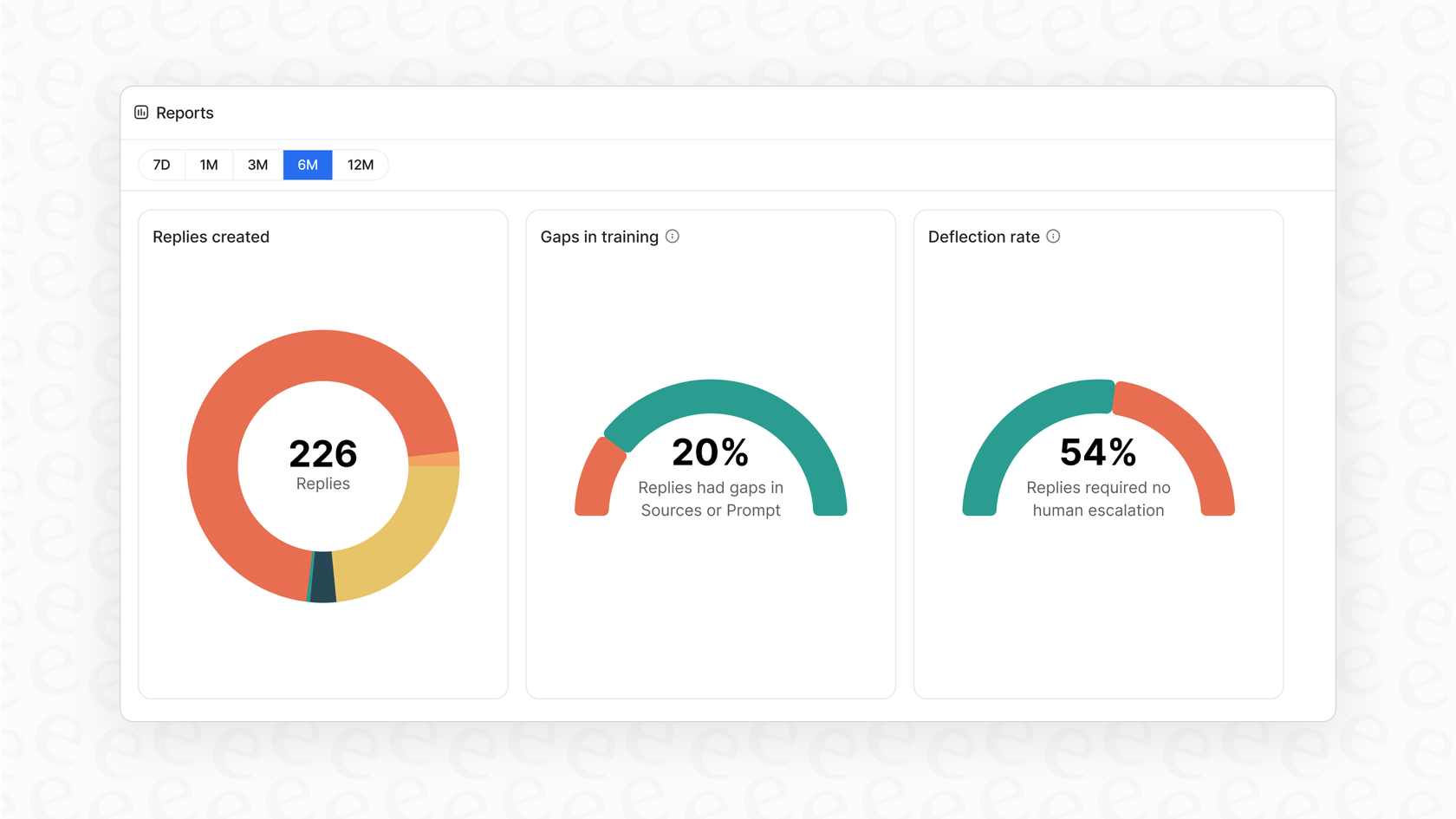A practical guide to all Zendesk AI features in 2026

Kenneth Pangan

Stanley Nicholas
Last edited January 12, 2026
Expert Verified

AI is popping up everywhere in customer support, and if you’re on Zendesk, you’ve likely noticed their own set of AI tools. They are designed to make life easier for everyone, from your agents to your customers, by leveraging a mature and reliable platform.
But what do these tools actually do? This guide is a straightforward look at all the Zendesk AI features. We’ll break down what’s included in your plan and the powerful options available through their advanced add-ons. Zendesk’s tools provide a robust foundation for any support team, and understanding how to best utilize them is the key to delivering world-class service in 2026.
What are the Zendesk AI features?
First off, "Zendesk AI" is a comprehensive suite of AI-powered tools built directly into the Zendesk platform. They are categorized into two main tiers to help you choose the right level of automation for your team.
-
Standard AI features: These are the core productivity boosters that come with most Zendesk Suite plans. They are excellent for streamlining agent workflows and enhancing self-service.
-
Advanced AI / Copilot add-on: This is a specialized add-on that unlocks higher-tier automation, such as intelligent triage and generative AI capabilities. It is priced on a per-agent, per-month basis, allowing for a scalable investment in your support technology.
This tiered system ensures that businesses only pay for the level of AI complexity they currently need. For teams looking for even more flexibility in how they connect external data, platforms like eesel AI serve as a great complementary option that integrates seamlessly into this ecosystem.
Exploring the standard Zendesk AI features
Let's start with the AI tools that are already part of the standard Zendesk Suite plans. These features are designed to provide immediate value to your support operations.
AI-powered knowledge management
What it is: This includes features like "Knowledge in the context panel" and "semantic search." These tools excel at helping agents and customers find articles in your help center with ease. When an agent is working on a ticket, the AI intelligently suggests relevant articles in a sidebar, keeping the focus right where it needs to be.
A complementary approach: While these tools are fantastic for internal Zendesk content, many teams have company knowledge stored across various platforms. If you have data in Confluence, Google Docs, or Notion, you can use a tool like eesel AI alongside Zendesk. It connects to all your external knowledge sources, ensuring your agents have the full picture without having to leave their Zendesk workspace.

Efficient automation with bots and autoreplies
What it is: Zendesk’s standard package includes conversational bots and an "Autoreply with article" feature. These are highly effective for managing high volumes of common questions by automatically providing helpful links to your knowledge base articles.
A complementary approach: To build on top of these structured automated responses, some teams choose to use eesel AI to incorporate learnings from past ticket resolutions. This can help provide an additional layer of context-aware responses that mirror your team's successful resolutions, making the automation feel even more integrated into your specific brand voice.

Suggested macros
What it is: As agents work, the AI suggests existing macros-your saved, pre-written responses-that match the customer's request. This is a great way to maintain consistency and speed up response times.
A complementary approach: If you want to go beyond pre-written macros, an AI copilot can be a great partner. The Copilot from eesel AI can draft unique, context-aware replies from scratch based on your entire knowledge base, working right alongside Zendesk's macro suggestions to give agents the best of both worlds.
Unpacking the advanced Zendesk AI features (Copilot add-on)
For teams ready to take their automation to the next level, the Copilot add-on offers sophisticated capabilities that further empower your support staff.
Intelligent triage
What it is: This feature uses advanced models to scan incoming tickets, identifying customer intent (like "billing question"), sentiment, and language. This allows for highly efficient routing to ensure every ticket gets to the right specialist immediately.
A complementary approach: While Zendesk's models are built on broad industry data for reliability, you can add extra layers of customization using eesel AI. This allows you to create specific rules and build custom actions that might involve checking external tools like Shopify, providing a highly tailored automation workflow that enhances your Zendesk setup.

Generative AI for agents
What it is: This is a powerful agent copilot tool that can summarize long ticket threads, expand bullet points into full replies, or adjust a message’s tone. It acts as a sophisticated writing assistant for your team.
A complementary approach: To maximize the effectiveness of these writing tools, you can use eesel AI to bridge the gap between your external documentation and your support tickets. By ensuring the AI has access to every piece of information, the generated replies are not only well-written but also fully informed by your entire company's data.
Macro suggestions for admins
What it is: This tool analyzes agent interactions and suggests new shared macros for admins to implement. It’s an excellent way for admins to maintain oversight and ensure the team is using the most effective response patterns.
A complementary approach: To take a more proactive approach to knowledge management, the analytics dashboard in eesel AI can highlight exactly where your knowledge base might have gaps. This data-backed insight helps admins know exactly which articles to create next, perfectly complementing Zendesk's macro suggestions.

Pricing and maximizing Zendesk AI features
Zendesk provides a structured and professional approach to AI, offering clear paths for businesses to upgrade their capabilities as they grow.
- Integrated knowledge: Zendesk AI is highly optimized for the Zendesk ecosystem, ensuring high reliability and ease of use for native content.
- Industry-proven models: The pre-trained models are built on massive datasets, ensuring they work effectively right out of the box for most businesses.
- Scalable investment: The per-agent pricing for the Advanced AI add-on ensures that teams only pay for the value they receive as they scale their support operations.
Understanding the pricing model
Zendesk’s tiered pricing is designed to match different business needs. Each Suite plan (Team, Professional, and Enterprise) provides a solid foundation of standard AI features.
For teams wanting to access the most advanced capabilities, the Advanced AI / Copilot add-on is available for $50 per agent, per month as an addition to your Suite subscription.
| Plan | Suite Price (per agent/mo, billed annually) | Investment for Full AI Capabilities |
|---|---|---|
| Suite Professional | $115 | $165 |
| Suite Enterprise | $169 | $219 |
A flexible option: If you're looking for an alternative way to scale AI across your organization, eesel AI's pricing offers a different approach. eesel AI provides plans based on AI interactions rather than seat count. This can be a great way for teams to manage costs predictably while still enjoying world-class AI features that work in tandem with their Zendesk account.

This video provides an overview of Zendesk's advanced AI features and how to prepare for their implementation.
Enhancing your Zendesk AI journey
Zendesk AI features provide a powerful, mature, and reliable suite of tools that can transform how your team handles customer support. By leveraging these native tools and considering complementary integrations, you can build a support experience that is both efficient and high-quality.
For teams who want to extend their AI capabilities to include external documentation and enjoy more granular control over their automation, eesel AI is a fantastic complementary solution.
eesel AI is designed to work in harmony with Zendesk. It bridges the gap between your various knowledge hubs and your support tickets, giving you a unified and powerful automation strategy. You can even use eesel AI's simulation mode to see the impact of these features on your actual support data before going live.
Ready to see how you can make your Zendesk setup even stronger? Try eesel AI for free and explore how to bring all your company's knowledge together for better customer support.
Frequently asked questions
Standard Zendesk AI features typically include AI-powered knowledge management for easier article discovery, conversational bots for efficient autoreplies, and suggested macros for agents. These are designed to boost productivity and improve self-service within the Zendesk ecosystem.
Yes, many of the advanced Zendesk AI features, such as intelligent triage and generative AI for agents, are part of the "Advanced AI / Copilot add-on." This allows teams to scale their capabilities by adding a per-agent, per-month subscription on top of their standard Zendesk Suite plan.
Zendesk AI features are highly optimized to operate within the Zendesk platform, ensuring seamless access to your help center content. To include knowledge stored in external tools, you can easily integrate complementary tools like eesel AI to connect platforms like Confluence or Google Docs.
Zendesk AI features come with robust, industry-standard intent models that work well for a variety of sectors. For teams needing hyper-specific customization for unique support workflows, Zendesk's flexible ecosystem allows for the addition of specialized apps to further tailor the experience.
The advanced Zendesk AI features are available through the "Advanced AI / Copilot add-on," which is priced at $50 per agent, per month. This allows teams to invest specifically in high-end automation as they grow their Zendesk Suite subscription.
The generative Zendesk AI features assist agents with tasks like summarizing threads or refining a message's tone. These tools serve as powerful writing aids, helping agents draft a comprehensive reply more efficiently while maintaining a professional brand voice.
Share this post

Article by
Kenneth Pangan
Writer and marketer for over ten years, Kenneth Pangan splits his time between history, politics, and art with plenty of interruptions from his dogs demanding attention.





